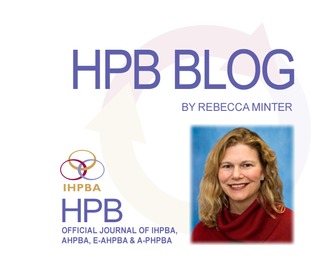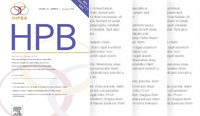International Hepato-Pancreato-Biliary Association
HPB Blog: July 2015

As we head into summer and the July issue of HPB is released, we couldn’t be more pleased than to report that the journal has achieved a 30% rise in its impact factor this year, increasing from 2.015 to 2.675. This places the Journal in the top 50 of all surgical journals (46/198) and in the 36th position of the 76 gastroenterology and hepatology journals. This significant rise is only possible through the contributions of all of our authors for submitting their best work, and the Editorial Board and colleagues who support the review process. We know that with your continued support HPB will continue to increase in its impact and footprint in the surgical literature.
In this month’s issue of HPB, an excellent meta-analysis regarding extended versus standard lymphadenectomy by Orci and colleagues puts to rest the idea that extended lymphadenectomy plays a role in the oncologic management of pancreatic adenocarcinoma. As outlined nicely in the Highlights section by Associate Editor Saxon Connor, this practice appears to consistently lead to increased peri-operative morbidity without improvement in survival. Improved systemic and targeted therapies are needed to improve outcomes in this disease – not more extensive surgery. http://onlinelibrary.wiley.com/doi/10.1111/hpb.12407/full
12 additional original articles follow this meta-analysis, with two impressive series from the University of Pittsburgh group reporting their outcomes and learning curve with robotic pancreatic surgery. This group continues to push the envelope with an ever expanding application of the robotic platform to surgical diseases of the pancreas with strict attention paid to patient safety and assessment of outcomes. http://onlinelibrary.wiley.com/doi/10.1111/hpb.12412/full; http://onlinelibrary.wiley.com/doi/10.1111/hpb.12414/full
Erdmann and colleagues from the Erasmus Medical Centre in the Netherlands report the longterm outcome of an RCT evaluating the role of intra-arterial chemotherapy and concomitant radiotherapy for patients with pancreatic ductal adenocarcinoma (PDAC) and non-pancreatic periampullary cancer (NPPC). This analysis demonstrates a durable response over five years of decreased liver metastases and an associated survival benefit for the NPCC group, while the PDAC group continued to show no longterm survival benefit with this treatment strategy. This suggests that patients with NPCC may benefit from an alternate adjuvant treatment strategy with liver targeted therapy as compared to PDAC. http://onlinelibrary.wiley.com/doi/10.1111/hpb.12401/full
Several additional studies reported in this month’s issue of HPB focus on the utilization and/or development of patient-centered pre-operative evaluation. These evaluations range from dedicated individual assessment of a patient’s underlying performance status and medical co-morbidities pre-operatively, to the integration of improved algorithms to decrease liver-failure related mortality. Each of these studies demonstrates the thoughtful manner in which HPB surgeons around the world are holistically approaching the surgical care of patients with HPB surgical disease to improve peri-operative outcomes.
Each of the above referenced articles and many more can be found in the July issue of HPB, and I encourage everyone to link to the journal table of contents here to peruse this valuable content now http://onlinelibrary.wiley.com/doi/10.1111/hpb.2015.17.issue-7/issuetoc.
Click here for the Table of Contents.
Rebecca Minter, MD. HPB Editor and Chief, Division of HPB & Advanced GI Surgery University of Michigan
Corporate Partners
If you are interested in becoming a Corporate Partner of the IHBPA please contact industry@ihpba.org
Find out more


